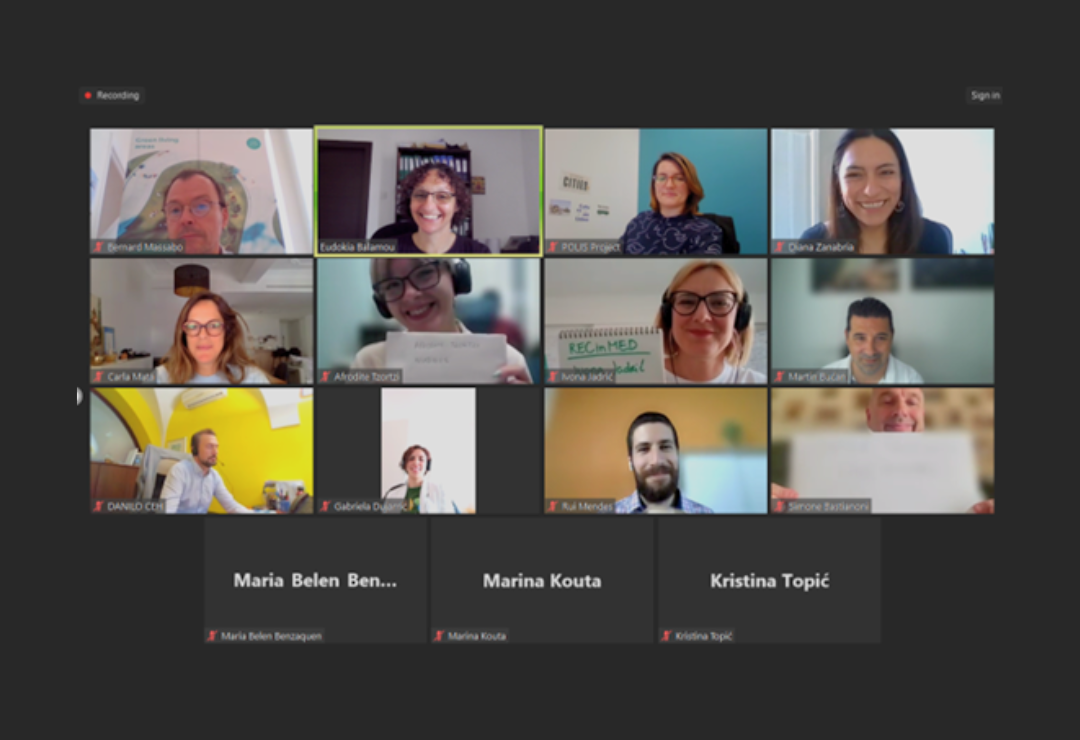From 11 to 13 June 2024, the Green Living Areas (GLA) Mission’s Thematic Working Groups focusing on policy met online to discuss needs and potential interesting policy instruments, in preparation for the Mission’s First Institutional Dialogue taking place this fall. Read more below!
This June, the GLA Mission’s Thematic Working Groups (TWGs) focusing on policy, bringing together the Mission’s Thematic Project partners with the Institutional Dialogue project partners, kicked off online through a series of meetings. Held in preparation for the First Institutional Policy Dialogue taking place on 10 October 2024 in Brussels, these meetings aimed to discuss the needs of the Thematic Projects’ partners and potential interesting policy instruments.
So far, five TWGs have been activated, related to topics aligned with the Thematic Projects, namely:
-
-
-
-
- Green Mobility
- Green Energy Systems
- Green & Climate Change Resilient Spatial Planning
- Finance for Green Transition
- Green Community Engagement
All meetings followed a common, dynamic structure, starting with an introduction to gather Thematic Projects’ Partners focused on turning project results into actionable policy instruments and sharing ideas for new policies. Participants reviewed feedback from the April 2024 Turin event and discussed policy survey results and preliminary insights from IREC’s policy mapping analysis. The aim? To identify key policy instruments for discussion within this institutional dialogue process. Each 90-minute meeting included an hour-long interactive discussion led by TWG leaders, setting the stage for the First Institutional Dialogue.
Key takeaways
Each TWG revealed insights to help us understand what would be needed from the Institutional Policy Dialogue and its discussions. Here are some of the key takeaways:
-
-
-
-
- Focus on local Level and policy guidance: Projects are primarily focused on the local level, developing tools for cities. There is a need for guidance on scaling project results to influence local policies and promote political engagement with community proposals.
- Targeting key policy instruments: Discussions should include key policy instruments like Integrated Territorial Investments, SECAPs, SUMPs, air quality, and spatial/urban development plans. Exploring barriers to innovative financing models and involving external stakeholders in design and implementation processes are also some of the more crucial topics to address.
- Social aspect and community engagement: Community engagement is a cross-cutting policy issue identified by many of the projects.
- Diverse and specific energy projects: There is no common priority across projects as they focus on different energy-related areas. Key areas include harmonizing energy policies in the Mediterranean, engaging specific communities and stakeholders, creating adaptable tools for diverse national frameworks, and producing policy recommendations for local energy transition planning.
- Urban mobility projects: No cross-cutting policy issue was identified as projects address specific urban mobility topics such as logistics, public transport electrification, autonomous transport, and charging infrastructure. While interconnected, the challenges are specific to each project.
The GLA Thematic Project partners’ active participation and commitment in these preparatory meetings underscore the collective effort to enhance policy implementation and foster sustainable practices across the region.
Read the full minutes from each TWG meeting here.
Up next: the First Institutional Policy Dialogue!
Next up will be the first Institutional Policy Dialogue, where a few selected policy champions will be analysed through the introduction of transversal elements: innovation, financing, and community engagement, to understand how these elements impact the implementation of the policies, either as catalysts or as barriers.
Time will then be dedicated to each policy, in parallel discussion groups, to evaluate the conditions for implementing, adapting and replicating these policies.
Stakeholders involved in policymaking related to Green Living Areas topics will be welcome to bring their added value to this first Institutional Policy Dialogue, to provide support to policymakers at a transnational level and benefit from exchanges of experiences and best practices with partners all around the Mediterranean basin.
Stay tuned as we reveal more!


